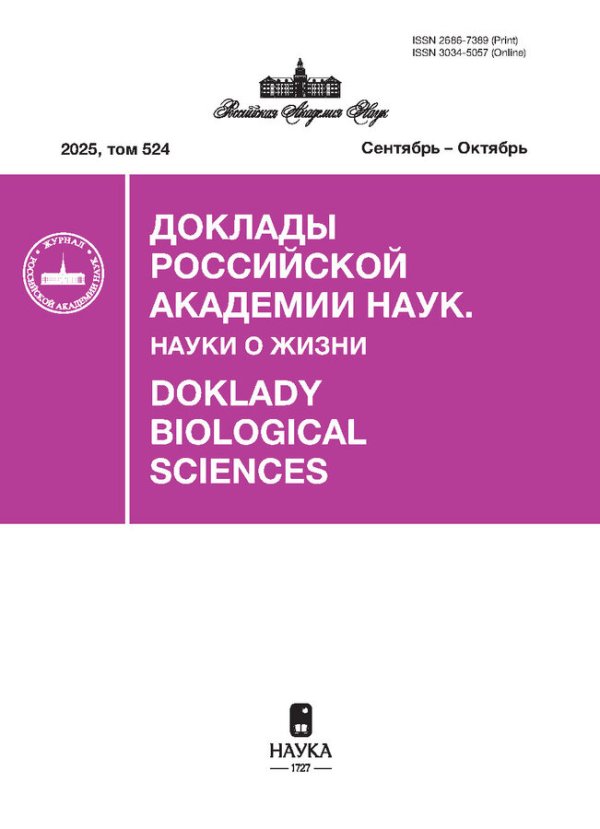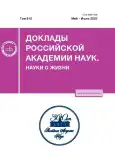ALLELOTOXICITY OF GREENHOUSE SUBSTRATES AFTER VEGETABLE CULTIVATION
- Authors: Shoba S.A.1, Gracheva T.A.1, Fedotov G.N.1, Ter-Petrosyants G.E.2, Jancharov T.M.2, Gorepekin I.V.1, Ushkova D.A.1
-
Affiliations:
- Lomonosov Moscow State University
- RSAU-Moscow Timiryazev Agricultural Academy
- Issue: Vol 510, No 1 (2023)
- Pages: 303-307
- Section: Articles
- URL: https://journals.rcsi.science/2686-7389/article/view/135702
- DOI: https://doi.org/10.31857/S268673892370021X
- EDN: https://elibrary.ru/QIDFPT
- ID: 135702
Cite item
Full Text
Abstract
It is known that stresses during the cultivation of agricultural plants reduce yields, and the occurrence of stressful effects leads to the release of allelotoxins by plants into the soil. It has been suggested that this factor can have a noticeable effect on the vegetation of vegetables in greenhouses, and a decrease in the concentration of allelotoxins in greenhouse substrates can improve the vegetation of plants. To verify these assumptions, the allelotoxicity of greenhouse substrates and the content of microorganisms in them under well and poorly vegetating plants of cucumbers, tomatoes and peppers were determined. It was found that there are significantly more allelotoxins and fewer prokaryotes in the substrates under poorly vegetating plants, which confirmed the assumption about the significance of the allelotoxins influence on the cultivation of vegetables in greenhouses. The introduction of humate solutions with a high sorption capacity in relation to allelotoxins into the root zone of plants makes it possible to significantly improve the vegetation of cucumbers and may be a promising direction for increasing vegetable yields in greenhouses.
About the authors
S. A. Shoba
Lomonosov Moscow State University
Email: tanyadunaeva12@mail.ru
Russian Federation, Moscow
T. A. Gracheva
Lomonosov Moscow State University
Author for correspondence.
Email: tanyadunaeva12@mail.ru
Russian Federation, Moscow
G. N. Fedotov
Lomonosov Moscow State University
Email: tanyadunaeva12@mail.ru
Russian Federation, Moscow
G. E. Ter-Petrosyants
RSAU-Moscow Timiryazev Agricultural Academy
Email: tanyadunaeva12@mail.ru
Russian Federation, Moscow
T. M. Jancharov
RSAU-Moscow Timiryazev Agricultural Academy
Email: tanyadunaeva12@mail.ru
Russian Federation, Moscow
I. V. Gorepekin
Lomonosov Moscow State University
Email: tanyadunaeva12@mail.ru
Russian Federation, Moscow
D. A. Ushkova
Lomonosov Moscow State University
Email: tanyadunaeva12@mail.ru
Russian Federation, Moscow
References
- Путина О.В., Беседин А.Г. Абиотические стресс-факторы и их влияние на накопление ассимилятов растениями и урожайность овощного гороха // Труды по прикладной ботанике, генетике и селекции. 2019. Т. 180. № 2. С. 51–59.
- Lipiec J. et al. Effect of drought and heat stresses on plant growth and yield: a review //International Agrophysics. 2013. V. 27. № 4. P. 463–477.
- Gholinezhad E. et al. Study of the effect of drought stress on yield, yield components and harvest index of sunflower hybrid Iroflor at different levels of nitrogen and plant population //Notulae Botanicae Horti Agrobotanici Cluj-Napoca. 2009. V. 37. № 2. P. 85–94.
- Allelopathy: a physiological process with ecological implications / Eds. M.J. Reigosa, N. Pedrol, L. González. The Netherlands: Springer Science & Business Media. 2006. P. 637.
- Allelopathy: current trends and future applications / Eds. Cheema Z.A., Farooq M., Wahid A. Berlin Heidelberg: Springer Science & Business Media, 2013. P. 513.
- Inderjit, Moral D.R. Is separating resource competition from allelopathy realistic? // The Botanical Review. 1997. V. 63. № 3. P. 221–230.
- Бирюков А.О. Стимулирующая способность тепличного грунта в условиях применения регуляторов роста растений //Автореф. канд. дисс. М.: РГАУ-МСХА. 2009. С. 20.
- Игнатьев Н.Н., Селицкая О.В., Бирюков А.О. Особенности стимулирующей и ингибирующей активности тепличного грунта при применении регуляторов роста растений / Известия ТСХА. Выпуск 4. 2005. С. 3–10.
- Овощеводство: учебное пособие. Ч. 1 / сост.: Е.Н. Габибова, В.К. Мухортов; Донской ГАУ. – Персиановский Донской ГАУ. 2019. С. 180.
- Федотов Г.Н., Шоба С.А., Федотова М.Ф., Горепекин И.В. Влияние аллелотоксичности почв на прорастание семян зерновых культур // Почвоведение. 2019. № 4. С. 489–496.
- Гаузе Г.Ф., Преображенская Т.П., Свешникова М.А., Терехова Л.П., Максимова Т.С. Определитель актиномицетов. 1983. М.: Наука. С. 245.
- Звягинцев Д.Г. Методы почвенной микробиологии и биохимии. Москва. Изд-во МГУ. 1991. С. 304.
- Костин В.И., Смирнов П.В., Епифанов Н.И. Влияние регуляторов роста на фотосинтетическую активность растений и урожайность тепличного огурца и томата //Гавриш. 2013. № 4. С. 17–19.
- Wang Z. et al. Changes in rhizosphere microbial communities in potted cucumber seedlings treated with syringic acid //PLoS One. 2018. V. 13. № 6. P. e0200007.
- Шоба С.А., Салимгареева О.А., Горепекин И.В., Федотов Г.Н., Степанов А.Л. Закрепление аллелотоксинов почв гуминовыми веществами как основа стимуляции прорастания семян // Доклады академии наук. 2019. Т. 487. № 3. С. 108–111.
Supplementary files











